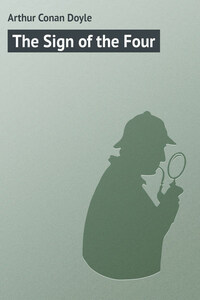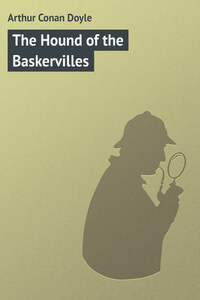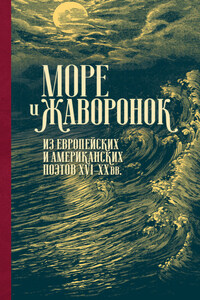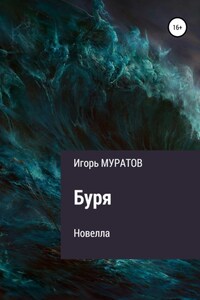Chapter I – The night of the beacons
It is strange to me, Jock Calder of West Inch, to feel that though now, in the very centre of the nineteenth century, I am but five-and-fifty years of age, and though it is only once in a week perhaps that my wife can pluck out a little grey bristle from over my ear, yet I have lived in a time when the thoughts and the ways of men were as different as though it were another planet from this. For when I walk in my fields I can see, down Berwick way, the little fluffs of white smoke which tell me of this strange new hundred-legged beast, with coals for food and a thousand men in its belly, for ever crawling over the border. On a shiny day I can see the glint of the brass work as it takes the curve near Corriemuir; and then, as I look out to sea, there is the same beast again, or a dozen of them maybe, leaving a trail of black in the air and of white in the water, and swimming in the face of the wind as easily as a salmon up the Tweed. Such a sight as that would have struck my good old father speechless with wrath as well as surprise; for he was so stricken with the fear of offending the Creator that he was chary of contradicting Nature, and always held the new thing to be nearly akin to the blasphemous. As long as God made the horse, and a man down Birmingham way the engine, my good old dad would have stuck by the saddle and the spurs.
But he would have been still more surprised had he seen the peace and kindliness which reigns now in the hearts of men, and the talk in the papers and at the meetings that there is to be no more war – save, of course, with blacks and such like. For when he died we had been fighting with scarce a break, save only during two short years, for very nearly a quarter of a century. Think of it, you who live so quietly and peacefully now! Babies who were born in the war grew to be bearded men with babies of their own, and still the war continued. Those who had served and fought in their stalwart prime grew stiff and bent, and yet the ships and the armies were struggling. It was no wonder that folk came at last to look upon it as the natural state, and thought how queer it must seem to be at peace. During that long time we fought the Dutch, we fought the Danes, we fought the Spanish, we fought the Turks, we fought the Americans, we fought the Monte-Videans, until it seemed that in this universal struggle no race was too near of kin, or too far away, to be drawn into the quarrel. But most of all it was the French whom we fought, and the man whom of all others we loathed and feared and admired was the great Captain who ruled them.
It was very well to draw pictures of him, and sing songs about him, and make as though he were an impostor; but I can tell you that the fear of that man hung like a black shadow over all Europe, and that there was a time when the glint of a fire at night upon the coast would set every woman upon her knees and every man gripping for his musket. He had always won: that was the terror of it. The Fates seemed to be behind him. And now we knew that he lay upon the northern coast with a hundred and fifty thousand veterans, and the boats for their passage. But it is an old story, how a third of the grown folk of our country took up arms, and how our little one-eyed, one-armed man crushed their fleet. There was still to be a land of free thinking and free speaking in Europe.
There was a great beacon ready on the hill by Tweedmouth, built up of logs and tar-barrels; and I can well remember how, night after night, I strained my eyes to see if it were ablaze. I was only eight at the time, but it is an age when one takes a grief to heart, and I felt as though the fate of the country hung in some fashion upon me and my vigilance. And then one night as I looked I suddenly saw a little flicker on the beacon hill – a single red tongue of flame in the darkness. I remember how I rubbed my eyes, and pinched myself, and rapped my knuckles against the stone window-sill, to make sure that I was indeed awake. And then the flame shot higher, and I saw the red quivering line upon the water between; and I dashed into the kitchen, screeching to my father that the French had crossed and the Tweedmouth light was aflame. He had been talking to Mr. Mitchell, the law student from Edinburgh; and I can see him now as he knocked his pipe out at the side of the fire, and looked at me from over the top of his horn spectacles.
"Are you sure, Jock?" says he.
"Sure as death!" I gasped.
He reached out his hand for the Bible upon the table, and opened it upon his knee as though he meant to read to us; but he shut it again in silence, and hurried out. We went too, the law student and I, and followed him down to the gate which opens out upon the highway. From there we could see the red light of the big beacon, and the glimmer of a smaller one to the north of us at Ayton. My mother came down with two plaids to keep the chill from us, and we all stood there until morning, speaking little to each other, and that little in a whisper. The road had more folk on it than ever passed along it at night before; for many of the yeomen up our way had enrolled themselves in the Berwick volunteer regiments, and were riding now as fast as hoof could carry them for the muster. Some had a stirrup cup or two before parting, and I cannot forget one who tore past on a huge white horse, brandishing a great rusty sword in the moonlight. They shouted to us as they passed that the North Berwick Law fire was blazing, and that it was thought that the alarm had come from Edinburgh Castle. There were a few who galloped the other way, couriers for Edinburgh, and the laird's son, and Master Clayton, the deputy sheriff, and such like. And among others there was one a fine built, heavy man on a roan horse, who pulled up at our gate and asked some question about the road. He took off his hat to ease himself, and I saw that he had a kindly long-drawn face, and a great high brow that shot away up into tufts of sandy hair.
"I doubt it's a false alarm," said he. "Maybe I'd ha' done well to bide where I was; but now I've come so far, I'll break my fast with the regiment."
He clapped spurs to his horse, and away he went down the brae.
"I ken him weel," said our student, nodding after him. "He's a lawyer in Edinburgh, and a braw hand at the stringin' of verses. Wattie Scott is his name."
None of us had heard of it then; but it was not long before it was the best known name in Scotland, and many a time we thought of how he speered his way of us on the night of the terror.












